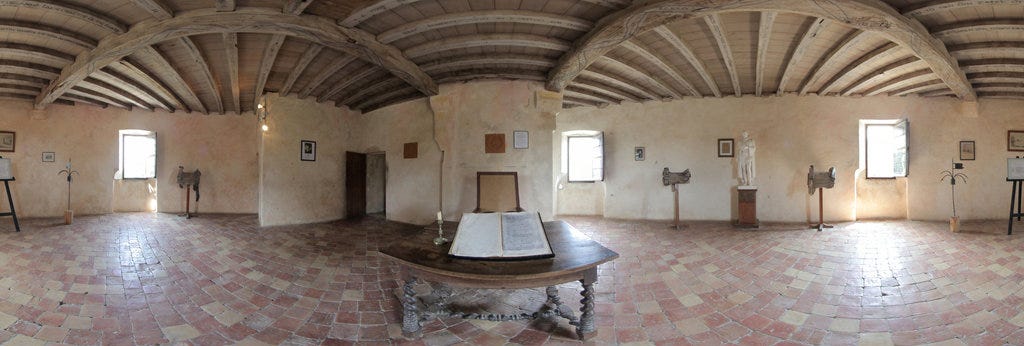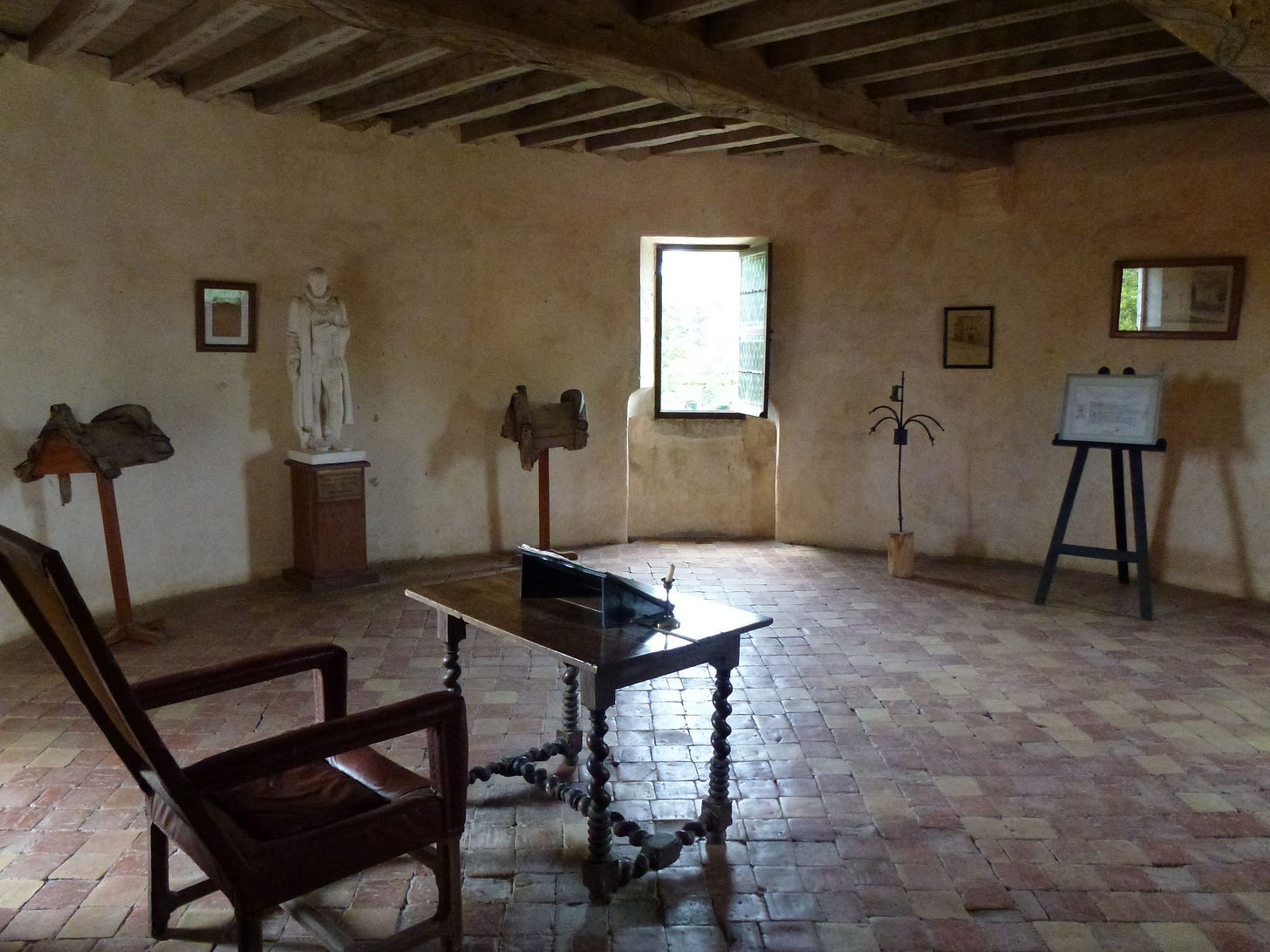We are not to judge what is possible and what is not, according to what is credible and incredible to our apprehension, as I have said elsewhere and it is a great fault, and yet one that most men are guilty of ... Every one thinks that the sovereign stamp of human nature is imprinted in him, and that from it all others must take their rule; and that all proceedings which are not like his are feigned and false. Is anything of another’s actions or faculties proposed to him? the first thing he calls to the consultation of his judgment is his own example; and as matters go with him, so they must of necessity do with all the world besides dangerous and intolerable folly!
Finished Montaigne’s “Essays.” How do I even begin to explain this Regina George of books? In 1571, a skeptical nobleman retires to his tower. He dictates 107 short pieces over 20 years. He calls them “essais” (“attempt,” in French). The “Essays” bear titles like “Of Drunkenness.”
They are informal, conversational. Montaigne begins on-topic, but his mind wanders. You’ll be reading an essay about rapid speech, but he’ll veer off to tell us “I am not a very collected and deliberate person” or he’ll hit you with the dankest shit ever about how to consider death.
His learning is so great, his insights so keen, that again and again he shocks us: What if the indigenous people of the Americas are superior to Europeans? What if culture's relative; are our values real? What if we're wrong about God? What if learning doesn't matter that much? And over and over again, What do I know? A twist, then another. This is a mind forever in the process of finding itself.
I would always have a man to be doing, and, as much as in him lies, to extend and spin out the offices of life; and then let death take me planting my cabbages, indifferent to him, and still less of my gardens not being finished.
If he had just been a clever 16th-century chronicler, that would’ve been enough. If he had merely written frankly and fearlessly, that would have been enough. If he had just invented the essay, that would have been enough.
But this book is something more: the “Essays” are the imprinting of a consciousness in a book, as no consciousness has ever been so imprinted. I’ll be plain: this work contains a mortal soul. It forever bears the real essence of its maker—like Sauron’s ring, but for a great and good man.
Indeed, the man is the book and the book is the man; it is the most complete and evocative record of a human mind we have. The “Essays” made me reflect on what I prize most in creative works. While all bad art is bad in its own particular way, great art has this in common: when we look at a piece of writing, or a stirring visual image, or a movie, we are looking for something that seems like life, I think—perhaps not our life but the image of life, whether it be a living mind or a pocket universe — we watch for the lighting of a companion fire. And Montaigne has done that. My guy was the first live-streamer.
Yet there’s another miracle still. He is you. Read the “Essays” and see your reflection. Sure, he tells you what it is to be Montaigne: his opinions on food, sex, marriage, war. But like us all, he is a human before he is an individual. His humility is so great that the “Essays” stop being the monologue of one guy, and somehow become a record of every human. How did this 500-year old man capture my thoughts, my feelings so precisely?
Wherever your life ends, it is all there. The utility of living consists not in the length of days, but in the use of time; a man may have lived long, and yet lived but a little. Make use of time while it is present with you. It depends upon your will, and not upon the number of days, to have a sufficient length of life. Is it possible you can imagine never to arrive at the place towards which you are continually going? and yet there is no journey but hath its end. And, if company will make it more pleasant or more easy to you, does not all the world go the self-same way?
I am he as you are he as you are me, and we are all together. Once, a beautiful woman and I stood in a Portland bookstore and read Montaigne’s dedication. Like gazing into an infinity mirror: we read the words that we had written that we were reading. Montaigne’s dead? No. He lives, has lived, will live. This old Gascon, he is the man. So farewell from Montaigne, this seventh day of November, two-thousand and twenty-four.






